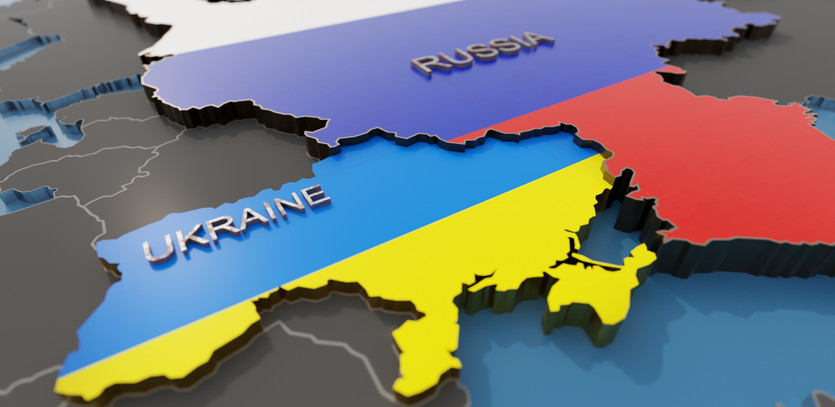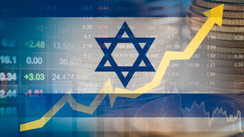Why should anyone outside the region care about the tumultuous happenings between Russia and Ukraine? This question is more than valid in a world that's increasingly interconnected. Here, we will unravel the intricate links between this major geopolitical crisis and global financial markets, shedding light on how a localized conflict can send tremors through the world economy.
Key Insights
Unraveling a conflict as complex as the one between Russia and Ukraine requires a glance at some significant aspects:
- The massive Russian military invasion of Ukraine has taken the global stock market by storm, resulting in unpredictable fluctuations.
- Investors worldwide are biting their nails, fearing that the conflict could push oil prices, already at an all-time high after 8 years, to further inflate, aggravating inflation and thwarting economic growth.
- Some analysts even anticipate an extreme scenario where oil could surge to an astonishing $140 a barrel.
The Stock Market Turmoil
The Reaction to Conflict
Stocks have not merely stumbled, but tumbled into a correction phase this week. The escalated tension culminating in Russia's full-scale invasion of Ukraine has injected uncertainty into markets. Since Russia stands tall as one of the world's largest oil producers, and with global supplies teetering at a low, this conflict threatens to drive oil prices even higher. This could result in:
- A further acceleration of inflation, already at a staggering 8-year high.
- A serious impediment to global economic growth, as the costly oil could make production and transportation more expensive across various industries.
Broader Economic Fears
The stock market's reaction isn't an isolated phenomenon; it's symptomatic of broader economic fears. Investors and market-watchers alike are holding their breath, anticipating potential aftershocks that could ripple through the global economy.
The Widespread Russian Assault on Ukraine
Military Strikes
The Russian onslaught on Ukraine has targeted vital areas, not just limited to Kyiv, Ukraine's capital. Major cities throughout the country have been under attack, marking a grim chapter in an ongoing saga. In retaliation, the U.S. has wielded the weapon of economic sanctions against Russia, a move that includes:
- Broad economic sanctions, hitting sectors like banking.
- Added sanctions imposed earlier in the week by the U.S., the U.K., and other western allies.
- Germany's bold step to cut off negotiations on a crucial natural gas pipeline connecting Russia and Germany.
Political Implications
These actions and counteractions are not merely military strategies but have profound political implications. They redefine alliances and shift the tectonic plates of global geopolitics, reshaping the landscape for years to come.
Background of the Conflict
Historical Roots
The current struggle between Russia and Ukraine isn't a sudden flare-up; it's a fire that's been smoldering for years. Centered around two separatist areas in eastern Ukraine known as the Donbas, it involves:
- Years of fighting between pro-Russian rebels and Ukrainian forces in Donetsk and Luhansk.
- Russian President Vladimir Putin's aggressive actions, like declaring these regions as “independent” and moving Russian troops into the area as “peacekeepers.”
Long-Term Aspirations
Putin's maneuvers aren't just about territorial claims. They reflect his longstanding belief that Ukraine should be part of Russia, a vision that ties into historical narratives and cultural connections. This aspiration has led to Russia's aggressive buildup along Ukraine's border, a saga dating back to the annexation of Crimea in 2014.
Global Implications
Economic Impact
The Russia-Ukraine war is not just a regional concern; it has serious potential to influence the global economy. While the depth and duration of this influence are yet to be fully realized, what's certain is that it's not confined to the combatants alone.
- A nuanced analysis by Neil Shearing, the group chief economist at Capital Economics, points out that the overall impact on countries other than Russia and Ukraine could be limited, depending on the conflict's intensity and the West's response.
- Emerging markets and dependent economies might feel the heat more profoundly, given their reliance on the ebb and flow of global trade.
Political Reverberations
The political reverberations of this conflict extend beyond the battlefield. The alliances being forged, the stance of neutral players, and the alignment of major global powers all signal a shift in the world order.
The Oil Factor: The Greatest Risk
The Crucial Role of Oil
The nexus between the conflict and global economy largely revolves around oil, a critical resource that fuels not just vehicles but entire economies. Consider these factors:
- The importance of Russian oil to the world economy can hardly be overstated.
- Any situation restricting its supply could cause prices to soar, further inflating already burgeoning prices, up more than 40% from December 2021 to February 2022.
- The existing imbalance between supply and demand is contributing to high oil prices, with OPEC+ (the Organization of the Petroleum Exporting Countries and other oil-producing countries) limiting production, and factors like cold weather and increased travel boosting demand.
Ripple Effects on the Economy
A barrel of Brent crude oil trading at an elevated price due to the invasion triggers a domino effect on the global economy. The escalating cost of oil leads to:
- Higher prices across the board, causing inflation to hit alarming levels, such as 7.5% in January, a 40-year high.
- Increased transportation costs affecting goods and services, given that nearly everything must be transported using fuel-consuming vehicles.
- Potential limitations on economic growth, where even a $10 rise in crude oil prices could traditionally shave U.S. GDP growth by about 0.1%.
Worst-Case Scenarios
In a scenario that seems apocalyptic but is grounded in economic theory, Capital Economics' Shearing predicts that oil prices could catapult to between $120 and $140 per barrel. Such an occurrence would:
- Add an additional two percentage points to inflation in advanced economies.
- Possibly prompt central banks to raise interest rates, something they might usually overlook in normal circumstances.
Economic Growth and Market Response
The Impact on Growth
The interplay between the conflict, oil prices, inflation, and interest rates creates a convoluted economic narrative. This intricate connection paints a picture of a world economy that's tightly knit and sensitive to regional upheavals.
Portfolio Safety
As disconcerting as the daily market fluctuations may appear, there's a silver lining. For now, the majority of market analysts hold the view that the Russia-Ukraine conflict will not wreak havoc on your investment portfolio. The underlying message? Stay informed, stay vigilant, but don't panic.





